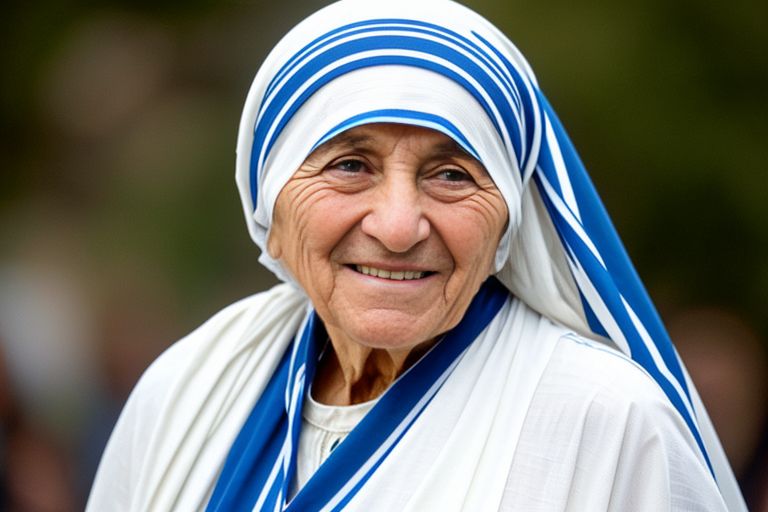The Enduring Legacy of Mother Teresa
- Japanese Kana: マザー・テレサ
- English name: Mother Teresa

Early Life and Calling
Mother Teresa, born Anjezë Gonxhe Bojaxhiu in 1910 in Skopje, then part of the Ottoman Empire, felt a calling to religious life from an early age. At 18, she joined the Sisters of Loreto in Ireland, never to see her family again. She was sent to India, where she taught at St. Teresa's School near her convent in Darjeeling and later headed the Loreto convent school in Entally.
Founding the Missionaries of Charity
The turning point in her life came in 1946 during a train journey to Darjeeling when she felt a divine call to serve the poorest of the poor. In 1950, she founded the Missionaries of Charity, which began as a small community with a dozen nuns and grew exponentially over the decades to include thousands of volunteers worldwide.
Expanding Her Influence
Under Mother Teresa’s guidance, the Missionaries of Charity expanded globally, setting up hospices, orphanages, and charity centers across continents. She became a symbol of selfless devotion, with her work recognized and acclaimed around the world. Her approach was straightforward yet profound: serve the unwanted and show unconditional love.
Controversies and Criticism
Despite her widespread acclaim, Mother Teresa was not without her critics. She faced criticism for her views on abortion and contraception, and her facilities were sometimes described as lacking in medical care. Critics argued that she glorified suffering instead of relieving it.
Recognition and Canonization
Mother Teresa received numerous awards, including the Nobel Peace Prize in 1979. She was canonized as Saint Teresa of Calcutta by the Catholic Church in 2016, a testament to her enduring legacy in the world of humanitarian work.
Death and Legacy
Mother Teresa passed away in 1997, but her legacy lives on through the Missionaries of Charity. The organization continues to aid those in need, adhering to her philosophy of love and service.
Her life’s work remains a beacon of hope and charity, inspiring many to continue her mission of serving the poorest and most vulnerable. Despite the controversies, her dedication to her faith and her humanitarian efforts have left an indelible mark on the world.